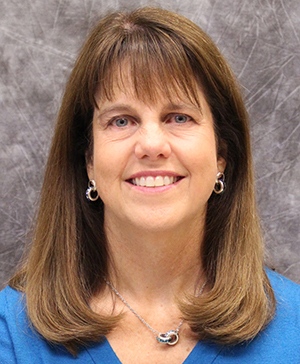ChE Seminar: Ms. Beverly Mentzer
| Event Date: | November 30, 2017 |
|---|---|
| Speaker: | Ms. Beverly Mentzer |
| Speaker Affiliation: | Davidson School of Chemical Engineering
Purdue University |
| Time: | 3:00 - 4:15 pm |
| Location: | FRNY G140 |
| Open To: | faculty, staff, and students |
| Priority: | No |
| School or Program: | Chemical Engineering |
| College Calendar: | Show |
 Ms. Beverly Mentzer
Ms. Beverly Mentzer
Retired Vice President at ExxonMobil
Abstract: Research is Complex…People are Complex…Processes are Complex…Decisions are Complex
This talk will present some tools that can help navigate these complexities. These tools are Structured Thinking Models that have been applied within industry for decades. The underlying logic for these models is: Since our results are impacted by our actions, and our actions are impacted by our thoughts; then how we “think about our thoughts” will impact our results. Four different Structured Thinking Models will be introduced, with example applications demonstrated for two models. These models are applied when it is important to:
- Achieve the desired results
- Maximize the value from the team members and resources
- Deliver the results in a timely and cost-effective manner
The use of Structured Thinking Models becomes more important as the complexity of the problem and diversity of the team increases. Decision-making can be very time consuming when aligning the team while simultaneously resolving the issues. For example, to decide whether to pursue a research or investment opportunity, there are multiple issues that must be considered - such as safety, environmental impact, design, operability, cost, probability of success and benefit. There are also multiple stakeholders – such as the investors, government, community and employees. In a diverse team, there will be diverse opinions as to what issue and which stakeholder is most important. These complexities can be addressed more effectively by agreeing to a thinking framework before beginning the work.
Many types of Structured Thinking Models exist for a wide range of applications. For example, researchers utilize the steps in the scientific method and government requires the steps in OSHA’s Process Safety Management regulation. The Structured Thinking Models discussed in this presentation apply broadly to the way people work together to deliver results, with special focus on decision-making and applying order to team processes. The first step of “thinking about thinking” builds team alignment, while the team’s product then guides the work.
Biographical Sketch:
Beverly Mentzer retired from ExxonMobil after working 33 years in both domestic and international engineering and managerial positions. During her career, she traveled extensively and held 16 positions – from entry level engineer to Vice-President. She graduated with a BS degree in Chemical Engineering from Louisiana State University in 1979, and is currently serving as an Industrial Career Counselor for the Davidson School of Chemical Engineering at Purdue University.
Beverly joined Exxon Production Research Company in Houston, Texas, and worked in process engineering and global technical support. Through multiple positions in Exxon USA’s Production Company, she managed onshore and offshore oil & gas field operations, projects, production facilities engineering, geoscience and subsurface technical support, labor relations, regulatory compliance and strategic planning. At LSU, she was on the Petroleum Engineering Advisory Council and a campus recruiter for engineers.
As the Business Development Manager for Exxon Pipeline Company, she had responsibility for asset sales/acquisitions, new business, FERC tariff filings and shared oversight of the Trans Alaska Pipeline (1.6Mbbls/day). She served on the Board of Directors of two Lower 48 joint interest pipeline companies. She led an assessment of LNG and Gas Conversion technology as the Alaska Gas Commercialization Manager; while working with the State of Alaska, joint venture partners and potential Far East customers. In London, she had responsibility for all the technical, operational, commercial, environmental, financial, audit and external relations aspects of ExxonMobil’s UK non-operated oil & gas production assets. This business unit contributed ~$1.5B/yr in profit (before tax) and spent ~$2B/yr in operations and capital expense. She also served on the UK Offshore Operators Association and chaired the industry’s Fiscal Policy Committee.
Globally, when Beverly was ExxonMobil Production Company’s Engineering Vice-President, she had responsibility for ensuring functional excellence in ~3000 engineering staff and their work products. She approved ~300 job moves/yr for experienced engineers. As the Gas & Facilities Technology Manager for ExxonMobil Upstream Research, she led teams of PhDs in the development of distinguishing technology for gas processing, oil sands, machinery, flow assurance, safety and the environment. Simultaneously, she ran the company-wide Operations Integrity Management System. She was responsible for the start-up of ExxonMobil Research Qatar and served as its Vice-President.
